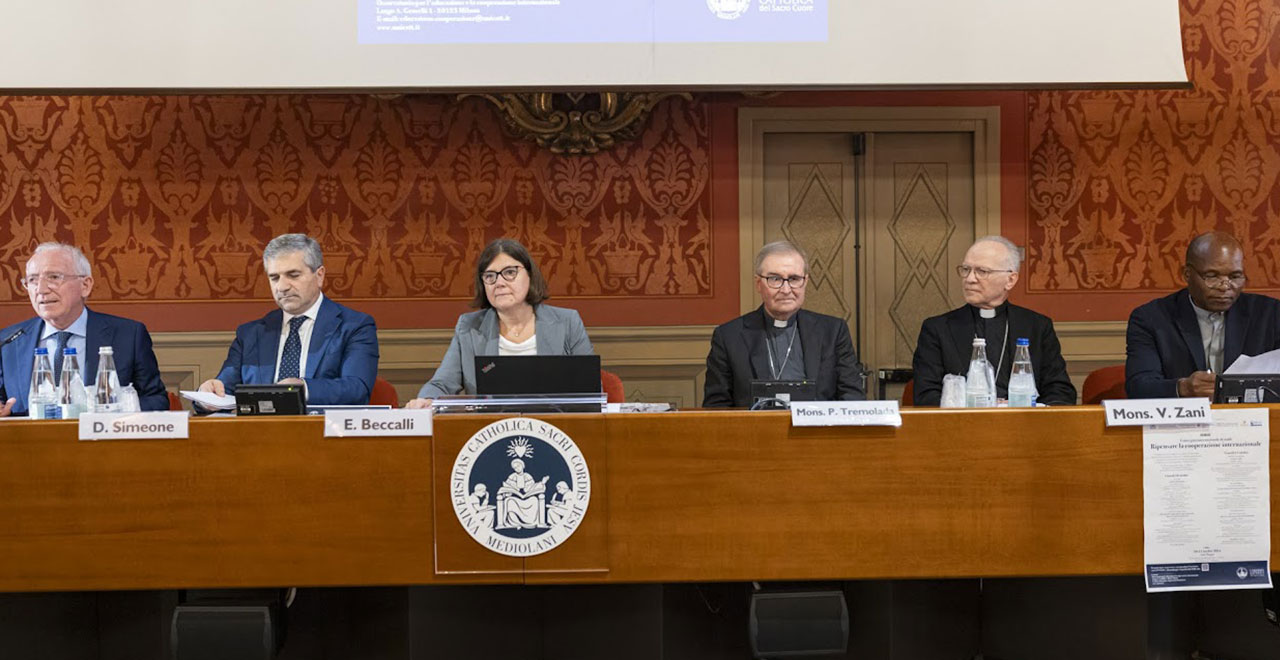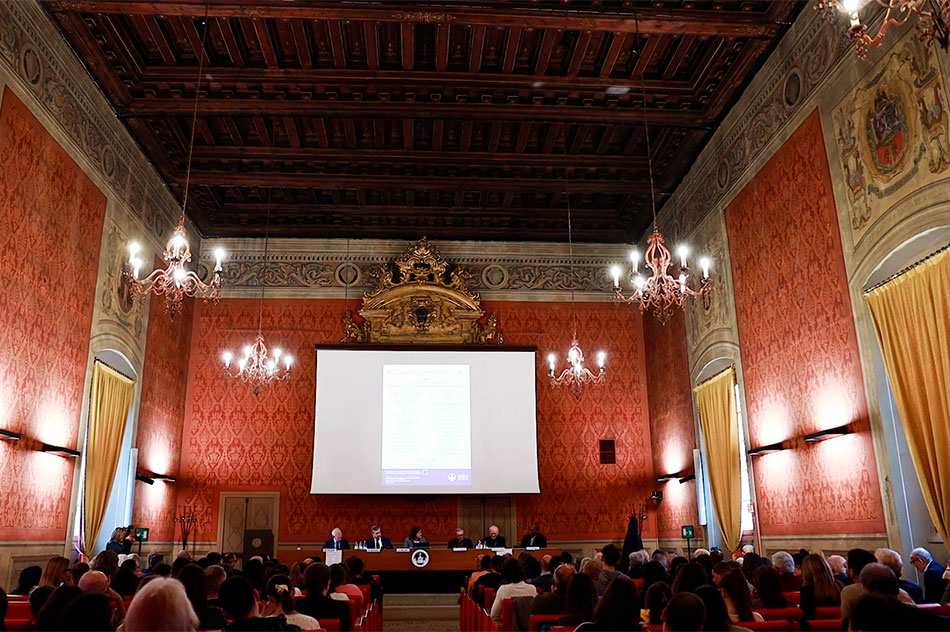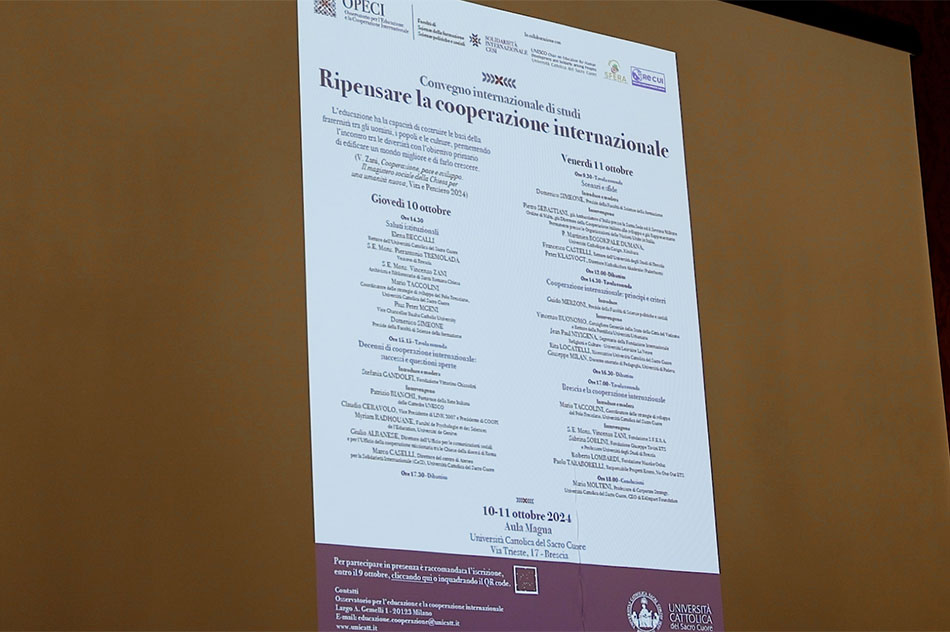For Msgr. Vincenzo Zani, Archivist and Librarian of the Holy Roman Church, “the new challenges must be met with a planning ability based on a solid anthropological vision that knows how to introduce into the social fabric and into the relations between countries the fundamental pillars such as: the ethics of life, responsible freedom, human and global good, solidarity at all levels, and universal fraternity. In this sense, international cooperation is one of the most effective, though not exclusive, tools to achieve the unity of the human community and the common good.”
In this regard, Rector Beccalli suggests the importance of drawing on the experience of Enrico Mattei’s Eni and of Marcello Boldrini, a professor at Università Cattolica, “for having attributed centrality to the training of the local ruling class, indicating the close link between education and the economic and social development of the poorest areas.” Starting from that history, “it is necessary to think of long-term programmes with the idea of mutual interest between Europe and the poorest areas of the planet”, according to a logic centred on the “binomial between growth and education, accompanied by solidarity, which is the key to integral and solidarity-based development, including the Global South”. A perspective that in many respects “echoes Eni’s experience and whose relevance is also understood today, in the phase of elaborating the Mattei Plan for Africa”. And which is leading the University to coordinate its cooperation activities with Africa in a plan.
A concern that also emerged from the words of Patrizio Bianchi, spokesperson for the Italian Network of UNESCO Chairs. “The new development cooperation must be based on principles of equality. Even the President of the African Union, Ethiopian Zewde, opening the UNESCO International Forum on the Future of Africa held a few days ago in Addis Ababa, said that African countries will only cooperate with countries that are ready to have educational, research, and development relations on an equal footing. And this is the perspective in which the Network of Italian UNESCO Chairs that I coordinate has been operating for some time. An approach that represents the most advanced tip of the new international cooperation.”
A concept also emphasised by Pius Peter Mgeni, Rector of the Ruha Catholic University in Iringa (Tanzania), with the eyes of someone who looks at international cooperation from the Global South: “When rich countries work together with poor countries and not for poor countries, they give added value. In the past there has been a top-down model, with the imposition of problems and solutions from above. There is a need for a paradigm shift, because the poor can also define problems and propose solutions. The bottom-up approach ensures the sustainability of projects.”






